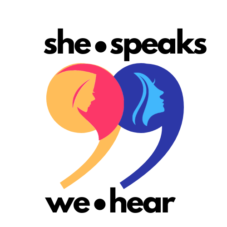by Hafsa Guled

“We accept the love we think we deserve.” – The Perks of Being a Wallflower (2013). I distinctly remember reading that quote on every corner of the internet in late 2014. It was typically accompanied with a black and white gif of a crying, dark haired boy mouthing the words stop crying, stop crying. The pure unfiltered agony and sadness radiating from my laptop screen captivated me. His hands were gripping at his face and I instantly needed to know his story. I was always a sucker for sad movies with morally correct lovable protagonists. This is how I, a shy anxiety ridden Somali American hijabi girl, fell in love with a movie just by a mere silent gif found in the corner of Tumblr.
“We accept the love we think we deserve.” – The Perks of Being a Wallflower (2013).
Growing up, I was taught that being quiet and shy wasn’t a desirable personality trait. Whether it was through well- meaning family members insisting that no job would hire a quiet girl or teachers putting me on the spot to read in class even when I slowly shook my head.
Not mention the constant media narrative of so- called oppressed hijabi women being pushed down my throat. I felt immensely guilty for not being like my other hijabi friends who had no problem speaking up. Every time I swallowed what I wanted to say, I personally felt I was contributing to the stereotype of all Muslim women being submissive and passive. That is why a movie essentially about a brilliant, fiercely loyal introvert resonated so deeply with 17 year old me.
Charlie, a fifteen year old freshman, is a quiet awkward boy who feels lost in high school. To the audience watching the movie from the outside looking, we could see that Charlie really doesn’t possess one bad trait. In fact, he seemed like the type of character you’d want by your side during a time of chaos. Unfortunately, typically in high school, character isn’t what counts. His struggles to fit in and yet stay true to his core, whilst in high school are universal themes that I, and nearly everyone, can deeply connect with.
For me, this film represented a realistic almost eerie coming of age story. It showcased the overwhelming sweet power of accepting friendships. It taught me that being quiet and reserved was something to celebrate. Perks let me know in many ways more than one that quietness was not equated with lacking in creativity and depth. Perks also helped me realize the parts of my being I loathed the most were actually the most wonderful aspects of me. It did all of that in the pretence of a teen movie.
A movie like this that encompasses so many heavy topics is truly hard to come by. As a director, Stephen Chbosky, really captured what it meant to be a teenager growing up. He cleverly captures the beauty of coming of age amidst chaos. The reason why the movie is so resonating is its ability to be unabashed and utterly honest in its portrayal of high school. Many teenagers can relate to Sam’s struggle of getting the perfect SAT score to make it into her dream college.
Charlie finds it challenging to find friends in high school. Mary Elizabeth tries to find the balance between being quick- witted while being vulnerable. Patrick struggles with violent, internalized homophobia from the boy he sees as the love of his love. And while all these aspects of the movie made it that much more real and heartbreaking to me, one scene in particular will stay with me for eternity.

The moment when close friends Patrick and Mary Elizabeth talk poor, shy Charlie into stripping down into his underwear and getting on a stage to perform The Rocky Horror Show was hands-down the most riveting moment in cinema for me. Charlie loses himself in stage and even subtly flirts with Sam, his long term crush. We see him break completely out of character and it is truly awe inspiring. For awkward me, it let me know that getting out of your comfort zone is not always disastrous.
At the end of day, never underestimate that quiet kid in your class. They may be hiding a whole world your extroverted self might not be aware of.
Hafsa Guled is a 19-year-old aspiring writer and social advocate, and you can follow her on Twitter @QUESADILLABABY
